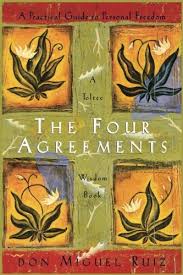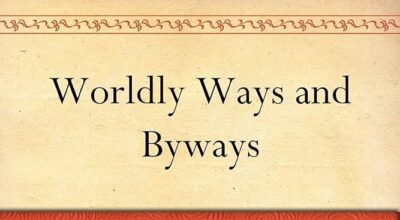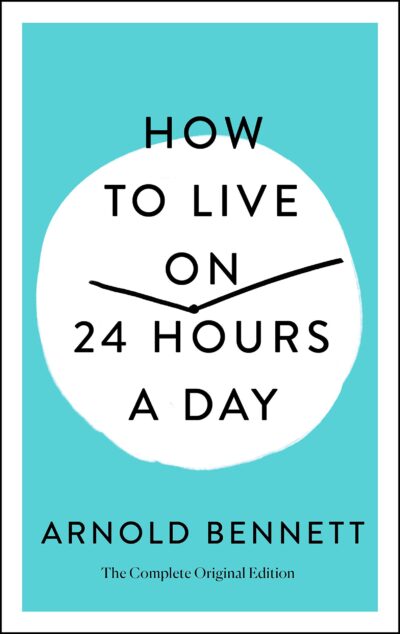99 Results in the "Self-Help & Personal Development" category
Biography & Memoir (434)
Books Like (8)
Business & Finance (26)
Children’s Fiction (151)
Dystopian (15)
Education & Learning (9)
Fantasy (1141)
fashion (1)
Fiction (4126)
Health & Wellness (21)
Historical Fiction (504)
Horror (151)
Literary Fiction (746)
Non-Fiction (1135)
Novel (229)
Others (72)
Philosophy (83)
Poetry (208)
Politics & History (115)
Posts (60)
Psychology (46)
Religion & Spirituality (1)
Romance Novel (520)
Science & Technology (82)
Science Fiction (177)
Thriller / Mystery (741)
Travel & Adventure (2)
True Crime (55)
view (96)
Young Adult (179)
-
Chapter
Don’t Make Assumptions
 Chapter 4: Don’t Make Assumptions, the third agreement in The Four Agreements by don Miguel Ruiz, a principle that addresses the profound impact assumptions can have on our lives. Ruiz explains that making assumptions often leads to misunderstandings, unnecessary conflict, and emotional distress. Many of the problems we face in relationships and life stem from the habit of assuming we know what others are thinking or what they mean by their actions, often without confirming or asking for clarification.…
Chapter 4: Don’t Make Assumptions, the third agreement in The Four Agreements by don Miguel Ruiz, a principle that addresses the profound impact assumptions can have on our lives. Ruiz explains that making assumptions often leads to misunderstandings, unnecessary conflict, and emotional distress. Many of the problems we face in relationships and life stem from the habit of assuming we know what others are thinking or what they mean by their actions, often without confirming or asking for clarification.…-
90.9 K • Ongoing
-
-
Chapter
Don’t Take Anything Personally
 Don’t Take Anything Personally is the second agreement in The Four Agreements, and it centers on the critical need to detach emotionally from the opinions and actions of others. This principle teaches us that everything people say or do, especially when directed at us, is more about their own internal world—shaped by their beliefs, experiences, and feelings—than it is about us. Ruiz emphasizes that when someone criticizes or reacts negatively, it is often a projection of their own reality and not an…
Don’t Take Anything Personally is the second agreement in The Four Agreements, and it centers on the critical need to detach emotionally from the opinions and actions of others. This principle teaches us that everything people say or do, especially when directed at us, is more about their own internal world—shaped by their beliefs, experiences, and feelings—than it is about us. Ruiz emphasizes that when someone criticizes or reacts negatively, it is often a projection of their own reality and not an…-
90.9 K • Ongoing
-
-
Chapter
Be Impeccable with Your Word
 Chapter 2: THE FIRST AGREEMENT Be Impeccable with Your Word THE FIRST AGREEMENT IS THE MOST IMPORTANT ONE and also the most difficult one to honor. It is so important that with just this first agreement you will be able to transcend to the level of existence I call heaven on earth.The first agreement is to be impeccable with your word. It sounds very simple, but it is very, very powerful.Why your word? Your word is the power that you have to create. Your word is the gift that comes directly from God. The…
Chapter 2: THE FIRST AGREEMENT Be Impeccable with Your Word THE FIRST AGREEMENT IS THE MOST IMPORTANT ONE and also the most difficult one to honor. It is so important that with just this first agreement you will be able to transcend to the level of existence I call heaven on earth.The first agreement is to be impeccable with your word. It sounds very simple, but it is very, very powerful.Why your word? Your word is the power that you have to create. Your word is the gift that comes directly from God. The…-
90.9 K • Ongoing
-
-
 Domestication and the Dream of the Planet is a powerful concept introduced in The Four Agreements, delving into the ways human consciousness is shaped and controlled by societal expectations. The chapter opens with a striking observation: the life we experience, both when we are awake and asleep, is not purely our own creation but instead a dream—constantly shaped by our thoughts, perceptions, and the collective influences of society. This "dream of the planet" is an ever-evolving narrative, where the…
Domestication and the Dream of the Planet is a powerful concept introduced in The Four Agreements, delving into the ways human consciousness is shaped and controlled by societal expectations. The chapter opens with a striking observation: the life we experience, both when we are awake and asleep, is not purely our own creation but instead a dream—constantly shaped by our thoughts, perceptions, and the collective influences of society. This "dream of the planet" is an ever-evolving narrative, where the…-
90.9 K • Ongoing
-
-
 The Four Agreements by Don Miguel Ruiz offers practical wisdom for personal freedom, teaching four simple principles to break free from limiting beliefs and find peace: Be impeccable with your word, Don’t take anything personally, Don’t make assumptions, and Always do your best. A powerful, transformative read for personal growth.
The Four Agreements by Don Miguel Ruiz offers practical wisdom for personal freedom, teaching four simple principles to break free from limiting beliefs and find peace: Be impeccable with your word, Don’t take anything personally, Don’t make assumptions, and Always do your best. A powerful, transformative read for personal growth.-
28.5 K • Jan 8, '25
-
4.2 K • Jan 8, '25
-
4.6 K • Jan 8, '25
-
-
 Chapter 17: Putting the Pieces Together: Self-Leadership. In life, we all experience moments where parts of ourselves seem to take over. For example, when confronted with trauma, we develop coping mechanisms that help us survive but may also fragment our sense of self. One of the key aspects of self-leadership is understanding and managing these internal parts, each with its own needs and responses. This process of integration is central to healing, especially for those who have faced significant trauma or…
Chapter 17: Putting the Pieces Together: Self-Leadership. In life, we all experience moments where parts of ourselves seem to take over. For example, when confronted with trauma, we develop coping mechanisms that help us survive but may also fragment our sense of self. One of the key aspects of self-leadership is understanding and managing these internal parts, each with its own needs and responses. This process of integration is central to healing, especially for those who have faced significant trauma or…-
362.9 K • Ongoing
-
-
 The Body Keeps the Score by Bessel van der Kolk explores how trauma impacts both the brain and body, offering insights into healing through therapies like mindfulness and yoga. A powerful, essential read for understanding and overcoming trauma.
The Body Keeps the Score by Bessel van der Kolk explores how trauma impacts both the brain and body, offering insights into healing through therapies like mindfulness and yoga. A powerful, essential read for understanding and overcoming trauma.-
4.1 K • Jan 8, '25
-
155.5 K • Jan 8, '25
-
46.3 K • Jan 8, '25
-
-
Story
Worldly Ways and Byways
 Worldly Ways and Byways by Eliot Gregory is a collection of essays published in 1898 that humorously critiques social etiquette, cultural norms, and the manners of the late 19th century. Gregory offers witty commentary on topics such as American versus European manners, the superficiality of certain social customs, and the influence of wealth on society. The essays, written in a light-hearted and satirical tone, provide an insightful glimpse into the social mores of the Gilded Age, making it both a delightful and thought-provoking read on human nature and social sophistication.
Worldly Ways and Byways by Eliot Gregory is a collection of essays published in 1898 that humorously critiques social etiquette, cultural norms, and the manners of the late 19th century. Gregory offers witty commentary on topics such as American versus European manners, the superficiality of certain social customs, and the influence of wealth on society. The essays, written in a light-hearted and satirical tone, provide an insightful glimpse into the social mores of the Gilded Age, making it both a delightful and thought-provoking read on human nature and social sophistication.-
5.1 K • Nov 8, '24
-
4.3 K • Nov 8, '24
-
5.0 K • Nov 8, '24
-
-
 How to Live on 24 Hours a Day by Arnold Bennett is a practical and motivational book that encourages readers to make the most of their time. Written in 1910, the book offers timeless advice on how to use the 24 hours we all have each day to enrich our lives. Bennett argues that by dedicating even a small portion of our day to self-improvement—through reading, learning, or reflecting—we can achieve personal growth and fulfillment. Blending wit, wisdom, and actionable suggestions, the book inspires readers to rethink their daily routines and invest in their intellectual and spiritual well-being.
How to Live on 24 Hours a Day by Arnold Bennett is a practical and motivational book that encourages readers to make the most of their time. Written in 1910, the book offers timeless advice on how to use the 24 hours we all have each day to enrich our lives. Bennett argues that by dedicating even a small portion of our day to self-improvement—through reading, learning, or reflecting—we can achieve personal growth and fulfillment. Blending wit, wisdom, and actionable suggestions, the book inspires readers to rethink their daily routines and invest in their intellectual and spiritual well-being.-
1.8 K • Nov 8, '24
-
1.9 K • Nov 8, '24
-
2.2 K • Nov 8, '24
-
- Previous 1 … 9 10
